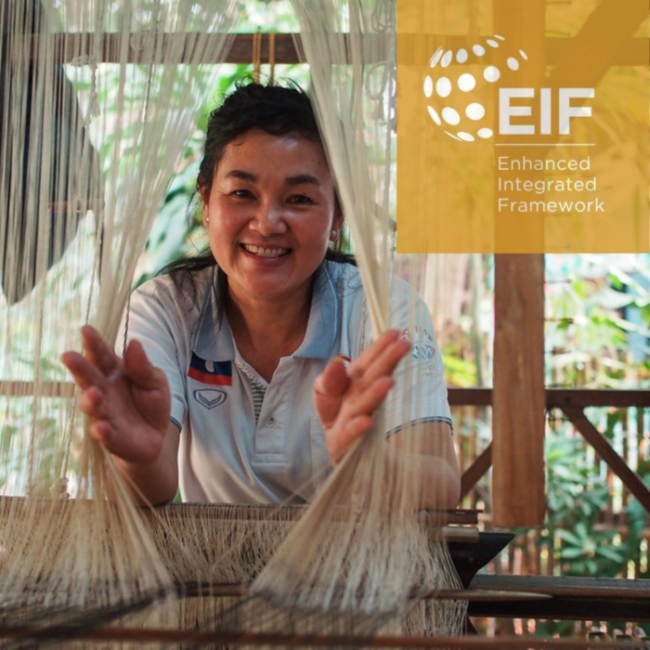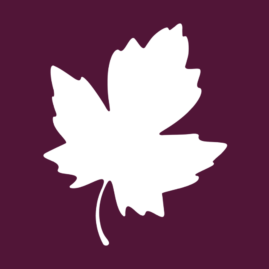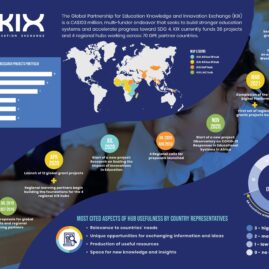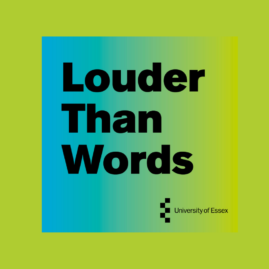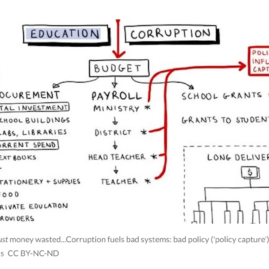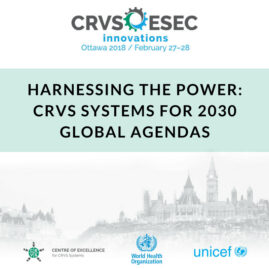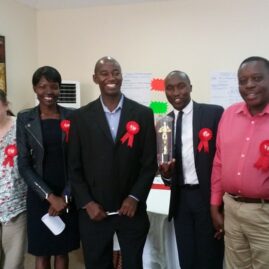The World Trade Organisation (WTO) is the latest in the line of global clients to have entrusted CommsConsult to help tell their story to the world.
The WTO has a big remit on the world stage. It has the job of agreeing – and defining – the rules of the trade game between nations. One of its flagship programs, the Enhanced Integrated Framework (EIF) is dedicated to supporting Least Developed Countries (LDCs) to utilize trade as an engine for growth, poverty reduction, and sustainable development.
In 2022, EIF asked CommsConsult to help them to tell their story.
Trade is a friend to poverty alleviation. But LDCs account for only around 2% of total trade in goods and services globally, and have also grown at a slower rate than the rest of the world over time. Between 2009 and 2023, EIF invested more than $220 million in 51 countries to maximise that potential to the full.
A guiding principle of the programme is to work in alignment with national priorities and needs and to secure government ownership over its work and direction of travel. An independent evaluation carried out in 2021 concluded that this had been achieved, with many countries having integrated trade into national development plans (NDPs), introduced national trade policies and strategies, and mainstreamed trade into sector-specific plans.
What we did
A team of CommsConsult writers looked at how to transform the often complex and technical macroeconomic programmes into engaging impact stories. We believed it was crucial to foreground the stories of the ordinary people at the centre of the EIF’s programme wherever possible. So, we conducted interviews with key players responsible for delivering and sustaining EIF projects within their countries. Where possible, we spoke directly to the beneficiaries of some of these projects, who shared their firsthand experiences and the results that mattered most to them.
The human story is often hidden in discussions of trade. Improvements in ministerial capacity to negotiate export terms are often dry and invisible, and progress towards accession to regional trade blocks would rarely make the front page of a newspaper. But the results benefit real people in lots of different ways.
The exact mechanism by which trade becomes central to a country’s development ambitions and strategy for growth is unique because no two economies are the same. But the overall ambition is the same: to expand opportunities and improve livelihoods across the nation.
Zambia shows other LDCs how to ‘bee’ successful in the trade game
The EIF identified trade as one of the engines of growth in Zambia. However, the country’s dependence on copper mining and agriculture meant its economy was highly vulnerable to global price fluctuations. Luckily, EIF had an eye on Zambia’s honey sector which, with the right actions to build its capacity, showed promising signs of becoming a strong sector conducive to pro-poor growth.. With this in mind, EIF provided Zambian beekeepers with new and modern infrastructure to improve the quality of the honey they were producing, giving them a competitive edge in markets at all levels.
When women participate in the digital economy, everybody benefits
E-commerce comes with fewer trading barriers, offers women bigger and more diverse markets, and allows them to operate flexibly around their domestic schedules. And yet, women and girls in Africa have not been able to take advantage of all these opportunities. That’s why with the support of EIF, Ethiopia took steps to close the gender gap in technology. EIF supported Ethiopia’s apparel and textiles sector, by giving women the skills to become more economically empowered – from expanding their technology use and digital skills to build online marketplaces, to connecting them with important actors in that space.
Happiness and trade: a match made in Bhutan
Bhutan has made national happiness (GNH) its goal, its philosophy, and its brand. The EIF has supported Bhutan in this right from the start, helping the country to strive for GNH. This pursuit requires that nobody was left behind so, the EIF supported the Bhutan Association of Women Enterprises (BAOWE) to promote savings and encourage self-sufficiency through microfinance and basic finance literacy training. The project empowered some of Bhutan’s most marginalised people, particularly women. The EIF also provided catalytic support in building e‑infrastructure for trade and services, and branding ”happy products” made or grown in Bhutan, giving the country’s businesses that much-needed competitive edge.
In 2021 Ngozi Okonjo-Iwela, Director-General of WTO commended the programme’s commitment to partnership. “EIF’s work with LDCs to reduce poverty and spur sustainable trade is essential. I know this has contributed to the resilience of countries during the last, difficult year. And I know that EIF’s strong partnerships with countries, and especially the core role of Ministries of Trade, can make a huge difference into the future.”
To read the rest of our impact stories, visit: https://trade4devnews.enhancedif.org/en/impact-story
If you think you have a story to tell, we’d love to help. Get in touch to find out how CommsConsult can help your organization.

